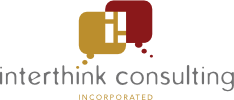What’s the help that we need in strategic planning? What are the insights that are important, and what is the expertise that is essential?
It’s a fascinating question, and a look at some recent job postings provides some interesting insights. As an example, Apple was looking for a director of strategic planning. The primary qualification for the position? Fifteen years experience in strategic planning with a major brand. Look for the qualifications to support planning in the health care industry, and they place first and foremost a requirement for experience in health care. I could go on, but I think you get the point.
What we need to reflect upon when lining up roles with their qualifications is: what are the expectations of how people are to perform in their roles? Apple seeking someone with major brand experience, for example, is likely to wind up with strategies that look a whole lot like those of other major brands. It’s a safe path, but it’s not necessarily an innovative one. Nor is it likely to lead to perspectives that shift an organization forward in a significantly meaningful but exponentially different direction.
That’s not to say that qualifications aren’t important, and that there are some roles that shouldn’t have a great deal of education and experience in a particular context. Strategy is a little different, however, and for a couple of reasons. First, strategy is about change; it is about seeing future possibilities that are fundamentally different from current reality. It is about envisioning what is possible, and defining the path necessary to realize that future. Secondly, strategy is about facilitating a strategic discussion. It is about a process that enables exploration of future possibilities and consequences. Thirdly, the management of defining, executing and realizing strategy is a transportable one that transcends industry. It draws on decision making, strategic planning, project management and transformation. These are relevant to a variety of industries, and not particular to an individual one. Finally, strategy is a collaborative process. The development and execution of strategy is not something taken on by one person. It is about a strategic conversation within and throughout the organization. Those responsible for the process co-ordinate the discussion, but it is the members of the broader organization that bring insight, context, meaning and purpose.
Whether we are hiring an employee or defining the requirements for a consultant, it is important to carefully consider which aspects are appropriate. Leading effective strategy development firstly requires exceptional facilitation skills. Those who perform this role well are good listeners, and are able to draw out insights, concerns and perspectives from all participants in the process. They are synthesizers, who integrate what they hear from disparate individuals into a cohesive picture that includes and embraces contradictions, rather than glossing over them. They are foils, challenging what they have heard, highlighting inconsistencies that do exist and ensuring the objectivity and clarity of contributions. They are catalysts, helping to transform understanding, shape possibility and create insights across diverse world views and perspectives. They are difficult skills to master, but they are the essence of what enables effective discovery and meaningful exploration of future strategic possibilities.
Engaging someone to guide the process of strategy development, or execution and strategy realization, isn’t about hiring someone to tell you, “You’re here. Do this.” It is about finding someone who can draw from the organization the insights that already exist and the knowledge that is not just embedded, but all too often buried out of sight. External views also need to be incorporated, of course, and the effective facilitator balances leveraging the contacts that the organization has with introduction of new and different perspectives that appear relevant and meaningful.
Through exploration, discussion, and challenge, the organization is able to move from their current understanding to a new perspective. Participants in the process challenge their own thinking, question and revise their assumptions and explore the uncertainties that influence where they are going—and what it will take to realize their goals. You can’t import that expertise into the organization; it is already embedded, and the value is in drawing it out. The ultimate qualifications for selecting someone to guide your organization is that they understand this perspective, and that they have the skills to help broaden yours.



Leave a Reply